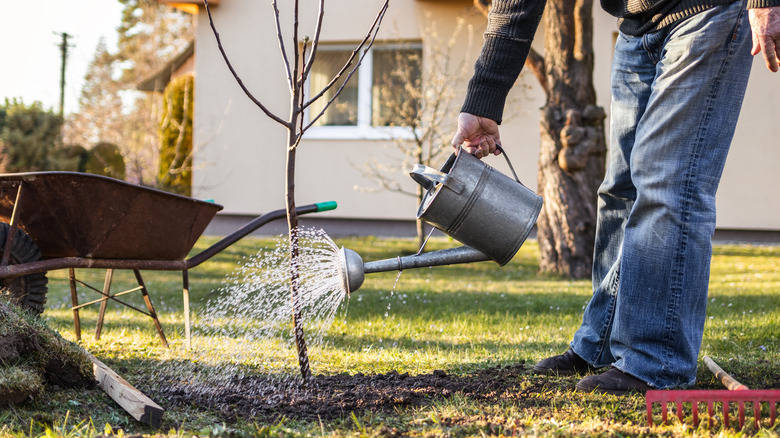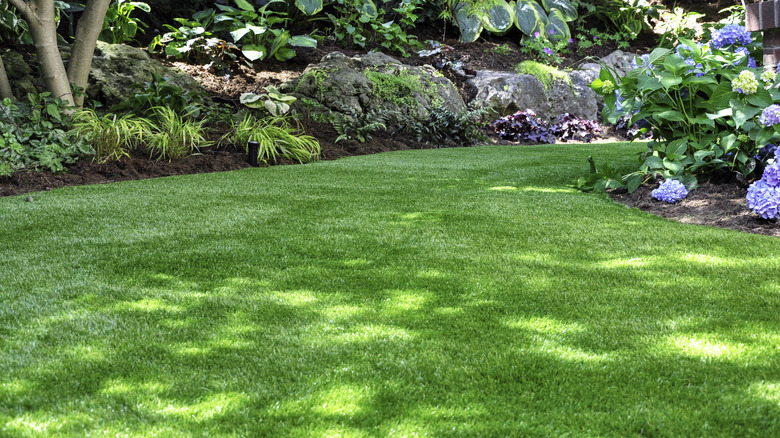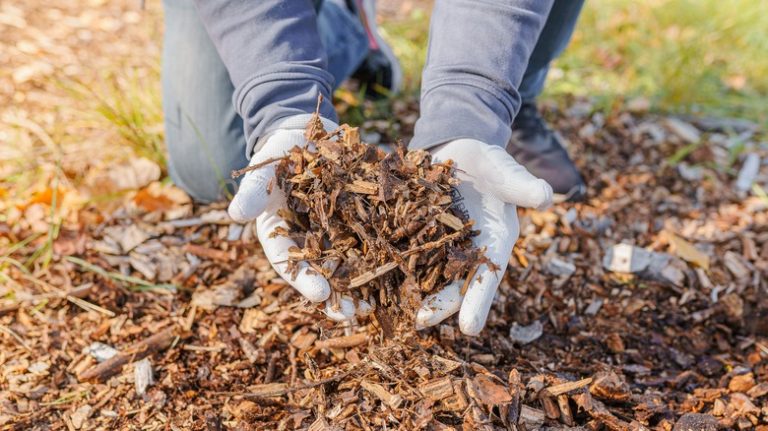There are few sights in life more beautiful than a green, plump, and even lawn. At family barbecues or summer picnics, a beautiful lawn is like a celebration of health and abundance. However, achieving that perfectly even green can be much harder than it looks, especially if you use your yard space frequently. Dry patches in your lawn are most commonly caused by thatch buildup and foot traffic, which leads to compacted soil, uneven water absorption, and brown, flaky grass. One way to help break up the compacted soil and thatch is to use a commercial wetting agent. However, these special lawn chemicals can be pricey if you’re covering a lot of ground, and there is a much easier way to revive these dry patches. All you need to do is pour a little dish soap into your inline dispenser, attach it to a sprinkler, and let it soak into the grass!
Using dish soap to repair patches on your lawn is surprisingly easy, and there are a few ways you can do it, depending on how hands-on you want to be. Learn more about how you can use dish soap to tackle dry spots in your yard, what dish soaps are best, and the other surprising benefits of this simple hack.
Dish soap cleans up brown patches

The first method is to fill an inline fertilizer dispenser with dish soap. To make the concentration safe for plants, adjust the dilution settings to dispense about 5 tablespoons or 3 ounces per 1 gallon of water. Next, attach the dispenser and watering hose to a sprinkler and let it water the lawn until thoroughly soaked. If you don’t own a sprinkler, you can also water the lawn by hand. Alternatively, mix your soap into a large watering can and pour it around the lawn, then follow up with plenty of plain water to help the soap soak in. After watering thoroughly, check the yard for soap bubbles, which could leave a residue that harms the grass. If this happens, spray down the bubbles until they’re no longer visible.
How does such a simple household product make such a difference? Dish soaps contain surfactants, which are intended to break down dense, decaying matter on dishware but can also cut through the old gunk in your grass. By breaking down organic matter, the bubbly mixture helps water flow through the thatch and into the soil. As an added benefit, this hack also softens the soil over time.
Added bug banishing benefits

While pests don’t typically cause dry patches, they can still ruin the experience of a good lawn. For extra effectiveness against insects, try mixing 1 teaspoon of vegetable oil into your dish soap and water solution. Dish soaps can be even better than commercial chemical insecticides because they typically only affect plant-eating insectsand usually won’t harm the bugs that protect your garden, like lacewings, bees, and ladybugs.
Of course, you don’t just want to pour any dish soap into your grass, especially if you plan to use this hack repeatedly or across a wide area. Look for dish soaps made with biodegradable ingredients and gentle cleansers. For the most part, you’ll want to avoid any dish soap that contains harsh chemicals, antibacterial ingredients, or bleaching agents, such as Dr. Bronner Castile soap, which can be used to gently cut through the gunk, reduce pests, and bring your patchy lawn back to life. Just remember that too much of anything can spell bad news for your lawn, so use any soaps sparingly and monitor your unique lawn’s response before repeating.
